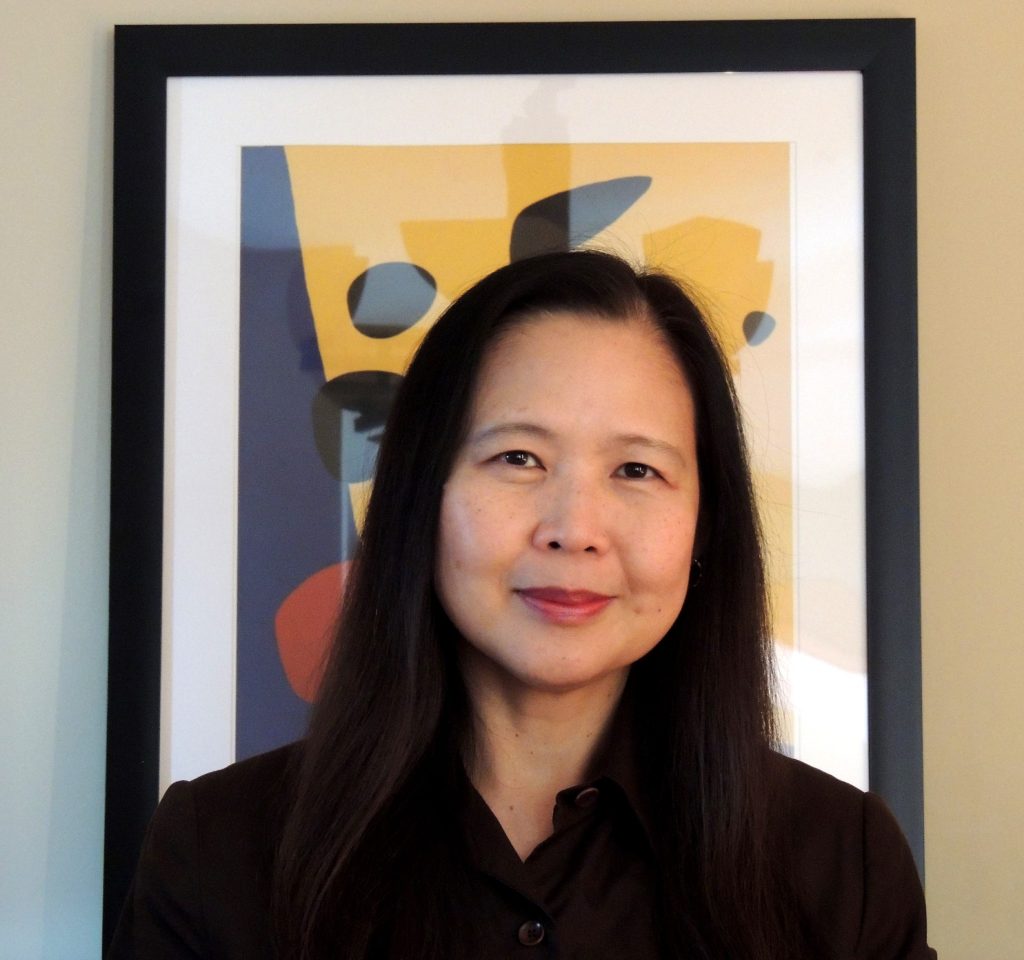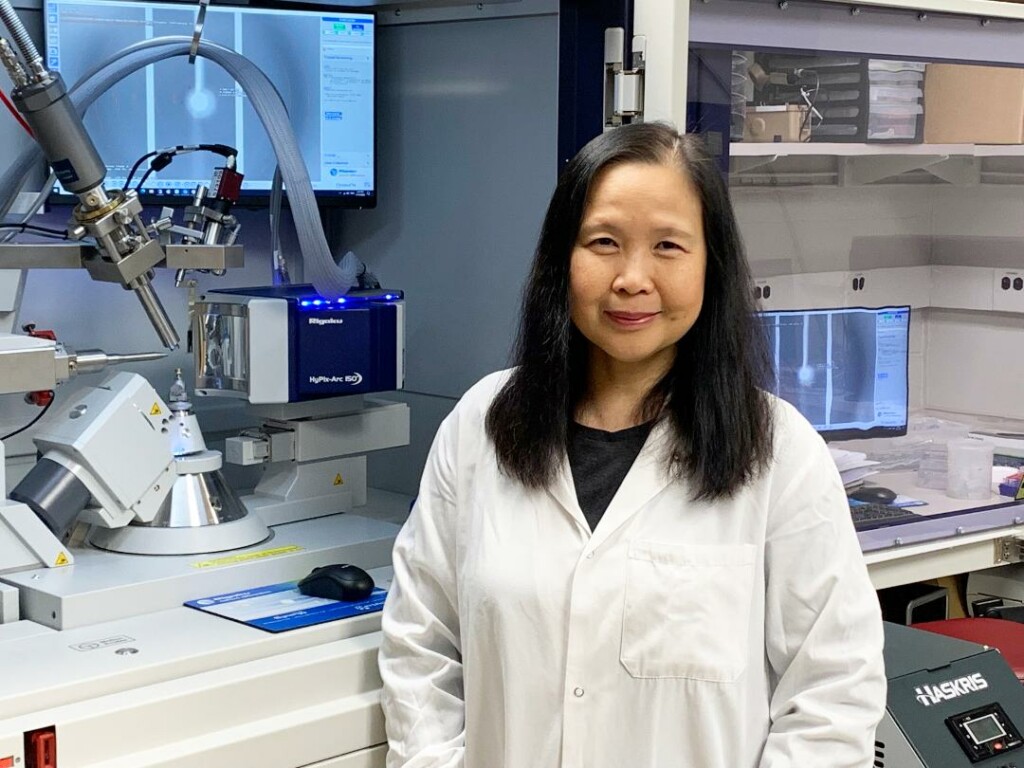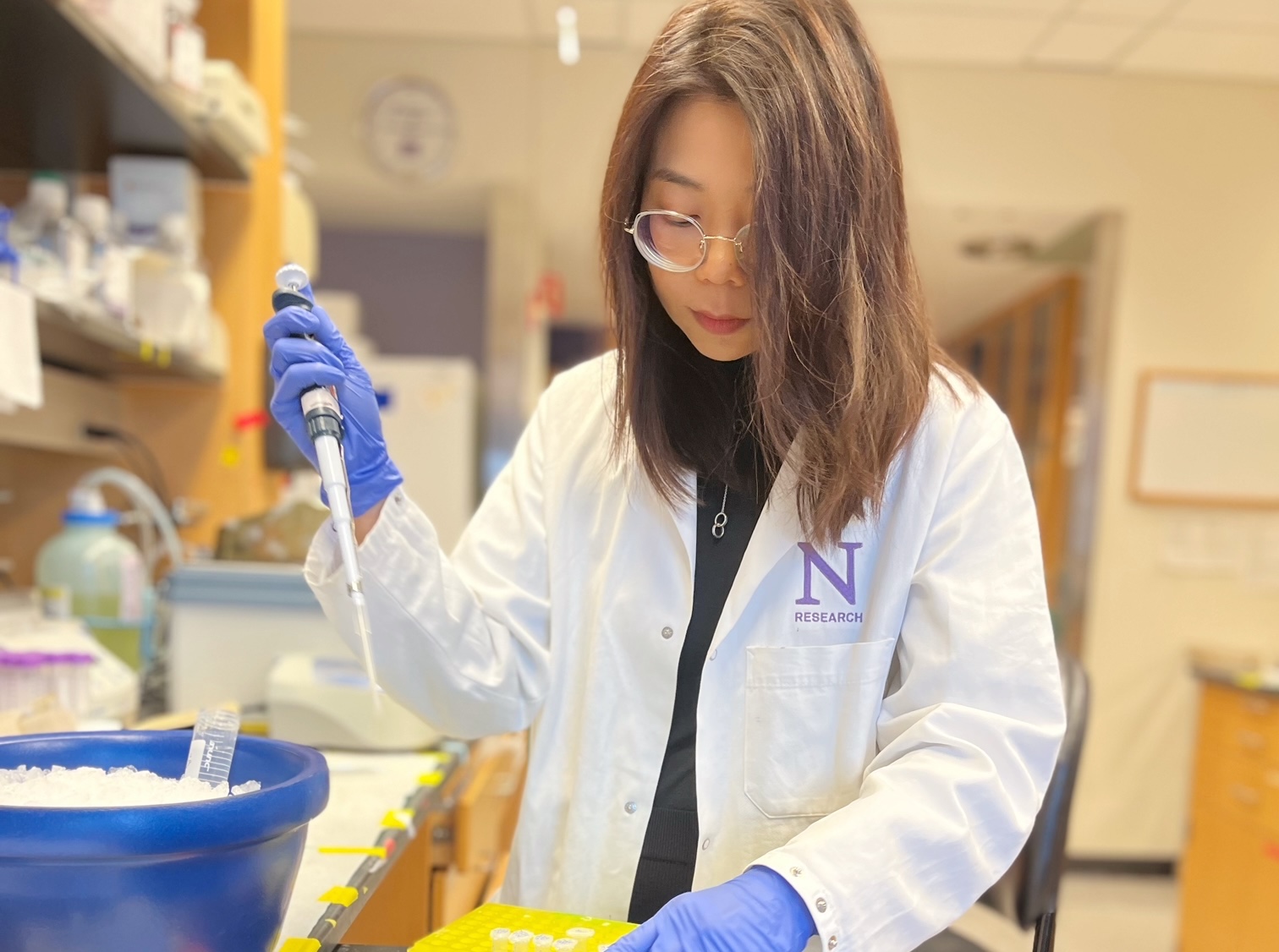
Dr. Maria Victoria Botuyan of Mayo Clinic Rochester is a 2022 recipient of OCRA’s Early Career Investigator Grant. Her OCRA-funded research is focused on studying how several proteins function together in regulating the repair of DNA, with the aim of using this knowledge to help develop better ovarian cancer therapies over the long term.
What initially sparked your interest in science?
Growing up in the Philippines, I spent a lot of time exploring the mangrove forests in the province of Pangasinan where I lived. The amazing life diversity in the mangroves and my fascination as a child for the many kinds of vegetation, fish, crabs, insects, and frogs in these tropical wet forests sparked my longtime interest in biology. My parents, uncles and aunts, and grandfather, who was a math teacher, also greatly influenced me. In college and graduate school, I studied chemistry, but always with an interest in understanding biology at the level of molecules.
What drew you to the field of ovarian cancer research?

Cancer is a disease that has touched many lives, directly or indirectly, including mine. For this reason, studying cancer, and specifically ovarian cancer, holds great meaning for me. I conduct research to try to decipher the molecular mechanisms underlying ovarian and related cancers. In the long term, using gained knowledge, my colleagues and I hope to develop new and improved ways to prevent and treat cancer.
Can you explain your research project?
Ovarian cancer, and cancer in general, is often triggered by malfunctioning molecules in our body. We study those molecules (called proteins) and what causes these proteins to not work as they should in patients with ovarian cancer. These proteins have defined shapes that are key to how they perform their functions. Damage to a particular protein (like what we call a mutation) can change the protein’s shape and make it inactive, which can trigger cancer.
In one aspect of my work, I use different techniques to visualize proteins. For example, using an electron microscope, we can see what the correct shape of a protein is and how a mutation can change this shape and inactivate the protein. By knowing the shape of a functional protein and that of its non-functional (mutated) counterpart, one could develop ways of restoring the correct protein shape and its function.
What motivates you to persist in your research?
I have a goal of contributing to the discovery of new and improved therapeutics against ovarian and other cancers through a better understanding of the molecular mechanisms underlying cancer. Achieving this goal is not a quick and simple task. With this mindset and an awareness that our success will help many patients with cancer, my colleagues and I are inspired to persevere and persist in our research.
What is your hope for the field of ovarian cancer research?
I am optimistic that the ongoing collective work of scientists and clinicians in the field of ovarian cancer research will advance our understanding of the disease to the extent that we will be able to completely cure it someday. Even if progress is slow, I have hopes that we will still have the means to counteract ovarian cancer very effectively in the foreseeable future, such that receiving a diagnosis will not be that frightening anymore.
If you had the opportunity to personally thank someone from the OCRA community who supported your work, what would you say?
Financial support from Ovarian Cancer Research Alliance (OCRA) since 2018 has allowed us to do and continue our research on ovarian cancer. I am truly grateful to OCRA and appreciative of their invaluable support.
I am also very grateful to the many individuals and communities that make up OCRA and those supporting the organization’s important mission of curing ovarian cancer, advocating for patients, and supporting survivors. In particular, I would like to acknowledge Phil and Judy Messing, who chose to direct their generous donation — in memory of their daughter Carol — to support our OCRA-funded research.
Thank you very much for all your support. I will do my very best to be worthy of all the trust you put in me.
Dr. Botuyan’s grant was made possible in part by a generous donation from Judy and Phil Messing, in memory of Carol S. Messing.


